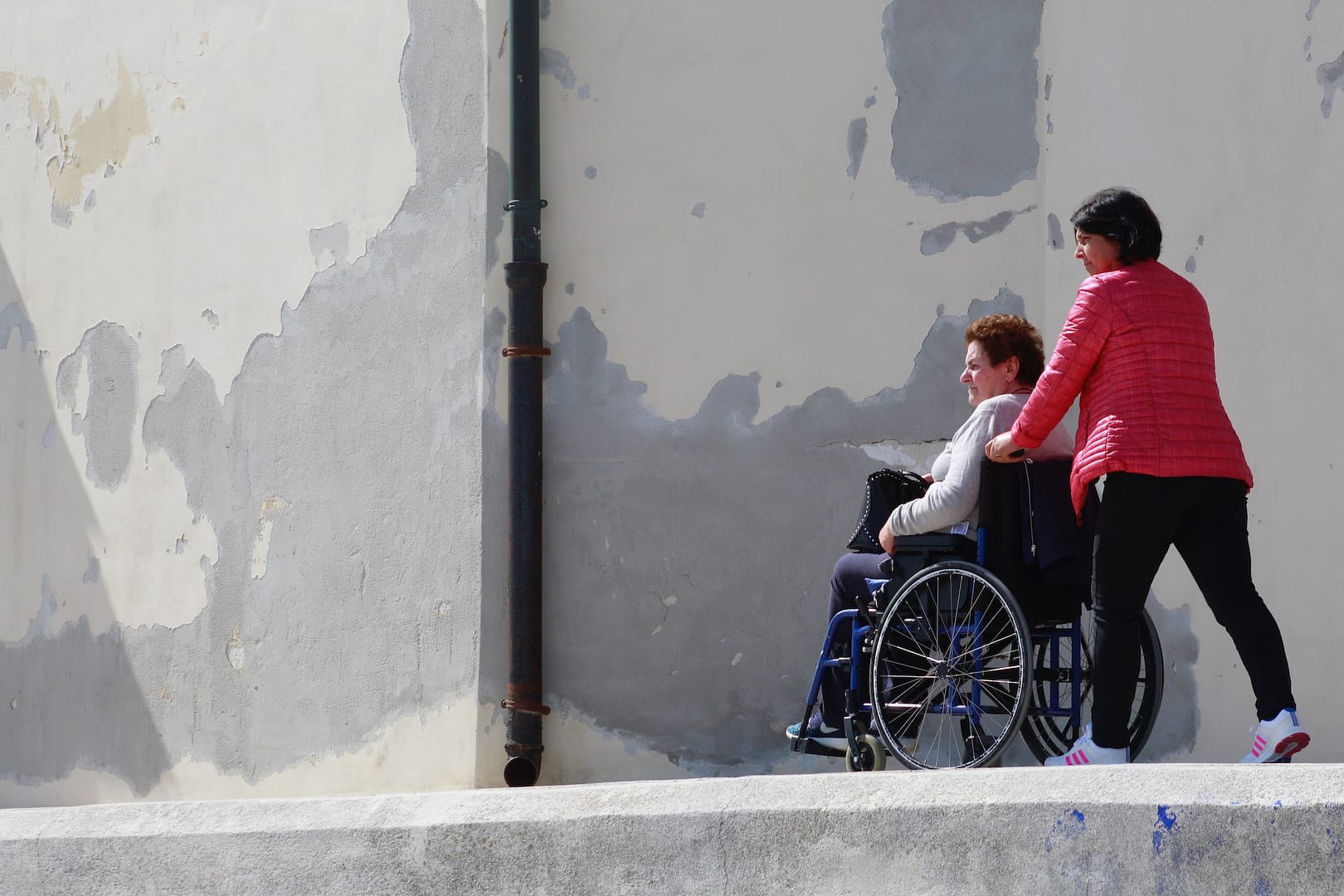When it comes to the world of work, safety should be paramount. Unfortunately, accidents do happen, and personal injuries can occur in Scottish workplaces. In this article, we’ll delve into the common causes of personal injuries in Scottish workplaces, shedding light on the key factors that contribute to these unfortunate incidents. Understanding these causes is crucial for employers, employees, and policymakers alike, as it can help in implementing preventive measures and ensuring a safer work environment.
Workplace Injuries: A Stark Reality
Workplace injuries are a significant concern not just in Scotland but worldwide. These incidents can range from minor cuts and bruises to more severe and life-altering injuries. In Scotland, as in the rest of the United Kingdom, workplace safety regulations are in place to protect employees, but accidents can still happen.
Slip and Fall Accidents
One of the most common causes of personal injuries in Scottish workplaces is slip and fall accidents. These incidents can occur in various work settings, from offices to construction sites. Imagine a scenario where a Scottish office worker is rushing to a meeting on a rainy day. As they step into the building, their wet shoes make the floor slippery, leading to a sudden and unexpected fall.
Slip and fall accidents can result in various injuries, including sprains, fractures, and head injuries. In many cases, such accidents can be prevented by maintaining clean and dry walkways, using warning signs in hazardous areas, and ensuring that employees wear appropriate footwear.
Manual Handling and Lifting
Manual handling and lifting-related injuries are another prevalent cause of workplace injuries in Scotland. These injuries often result from improper lifting techniques or attempting to lift objects that are too heavy. Picture a scene at a Scottish warehouse where employees are rushing to load heavy boxes onto a truck. In their haste, they may neglect to use proper lifting techniques, putting immense strain on their backs.
Such injuries can lead to long-term health problems and significant time off work. Employers can reduce the risk of manual handling injuries by providing training on proper lifting techniques, supplying lifting aids, and encouraging employees to ask for assistance when handling heavy objects.
Machinery Accidents
In industrial settings, machinery accidents are a constant concern. Scottish workplaces, particularly those in manufacturing and construction, often involve the operation of heavy machinery and equipment. These machines can be dangerous if not used correctly or if safety protocols are not followed diligently.
A hypothetical example involves a construction worker in Scotland who is tasked with operating a crane. Due to a momentary lapse in concentration, the worker fails to secure a load properly, leading to a catastrophic accident.
Machinery accidents can result in devastating injuries, ranging from amputations to severe burns. To mitigate the risk of such accidents, it is essential for employers to provide comprehensive training, conduct regular equipment maintenance, and enforce strict safety procedures.
Electrical Hazards
Electrical hazards are a silent threat in many Scottish workplaces. Faulty wiring, malfunctioning equipment, or inadequate safety measures can all contribute to electrical accidents. Imagine an office setting where a Scottish employee encounters an electrical outlet with exposed wires due to poor maintenance. In an attempt to plug in a device, they inadvertently receive an electric shock.
Electrical injuries can range from minor burns to fatal electrocution. Employers must prioritize electrical safety by conducting routine inspections, promptly addressing electrical issues, and ensuring that employees are aware of potential hazards.
Chemical Exposure
In certain industries, such as manufacturing and healthcare, chemical exposure is a significant concern. Chemicals can be hazardous, and accidental exposure can lead to injuries, ranging from skin irritations to severe respiratory problems. A hypothetical scenario involves a Scottish laboratory technician who mishandles a chemical solution, leading to chemical burns and respiratory distress.
To prevent chemical-related injuries, employers should provide adequate training on chemical handling, ensure proper storage of hazardous materials, and provide appropriate personal protective equipment (PPE) to employees working with chemicals.
Workplace Violence
While it may not be as common as some of the other causes mentioned, workplace violence is a serious issue that can result in personal injuries. It can involve conflicts between employees, customers, or even outside individuals. In a hypothetical retail setting in Scotland, a customer becomes irate and physically assaults an employee during an argument.
Workplace violence can lead to physical injuries, emotional trauma, and a hostile work environment. Employers should implement workplace violence prevention programs, train employees on conflict resolution, and have security measures in place to ensure the safety of their staff.
Ergonomic Issues
Ergonomic issues can lead to long-term personal injuries. Poorly designed workstations, inadequate seating, and repetitive tasks can all contribute to musculoskeletal disorders, such as carpal tunnel syndrome and back pain. Imagine a scenario in a Scottish office where employees are required to spend long hours typing on poorly positioned keyboards, leading to wrist strain.
To address ergonomic concerns, employers should invest in ergonomic furniture and equipment, conduct ergonomic assessments, and encourage employees to take regular breaks to prevent overuse injuries.
Major Workplace Injuries: A Closer Look
Now that we’ve explored the common causes of personal injuries in Scottish workplaces, let’s take a closer look at what constitutes a major workplace injury. In the United Kingdom, including Scotland, a major workplace injury is defined as one that results in death, serious injury, or a significant medical condition. These injuries must be reported to the Health and Safety Executive (HSE).
Some examples of major workplace injuries include:
Falls from Height
Falls from height are a significant concern in industries like construction and maintenance. These accidents can result in severe injuries, including fractures, spinal cord injuries, and even fatalities. Scottish employers must provide fall protection equipment and proper training to mitigate the risk of such incidents.
Amputations
Amputations are life-altering injuries that can occur in workplaces with heavy machinery. Employers must implement strict safety protocols, provide protective equipment, and conduct regular equipment maintenance to prevent amputations.
Burns and Scalds
In workplaces where chemicals or hot liquids are present, burns and scalds can occur. Proper safety measures, including the use of PPE and appropriate storage of hazardous materials, are essential to prevent these injuries.
Electrocutions
Electrocutions can result from faulty wiring, exposed electrical components, or inadequate training. Employers must prioritize electrical safety and ensure that employees are well-informed about potential hazards.
Respiratory Illnesses
Inhaling hazardous substances can lead to respiratory illnesses. Employers should provide proper ventilation, PPE, and training to reduce the risk of such conditions.
Making a Personal Injury Claim with National Claims
At National Claims, we understand the challenges that individuals face when they experience personal injuries in Scottish workplaces. We are here to help you navigate the process of making a personal injury claim to ensure you receive the compensation you deserve.
Contact Us: The first step in making a personal injury claim with National Claims is to get in touch with our team. You can reach out to us through our website, via phone, or by visiting one of our offices in Scotland.
Initial Consultation: During your initial consultation, our experienced solicitors will gather essential information about your case. This includes details about the accident, your injuries, and any relevant evidence.
Assessment of Your Claim: Our legal experts will assess the merits of your claim to determine its strength. We will consider factors such as liability, negligence, and the extent of your injuries.
Legal Representation: If we believe you have a strong case, we will provide legal representation and support throughout the claims process. This includes negotiating with the responsible party and their insurance company on your behalf.
Settlement or Court Action: Depending on the circumstances of your case, we will work to secure a fair settlement. If an agreement cannot be reached, we are prepared to take your case to court to ensure your rights are protected.
Compensation: Our goal is to secure the maximum compensation possible for your injuries. This may include damages for medical expenses, lost wages, pain and suffering, and other related costs.
No Win, No Fee: At National Claims, we operate on a “No Win, No Fee” basis. This means that you won’t incur any legal fees unless we successfully obtain compensation on your behalf.

Conclusion
In Scottish workplaces, as in workplaces worldwide, personal injuries are an unfortunate reality. While accidents can happen, understanding the common causes and major workplace injuries is essential for preventing and mitigating these incidents. Employers in Scotland must prioritize safety by providing proper training, maintaining equipment, and enforcing safety protocols. Employees also have a role to play by staying vigilant and reporting hazards promptly.
At National Claims, we are committed to helping individuals who have suffered personal injuries in Scottish workplaces. Our experienced solicitors are dedicated to providing legal representation and securing the compensation you deserve. By working together, we can create safer Scottish workplaces where personal injuries become the exception rather than the norm. If you’ve been injured at work, don’t hesitate to reach out to National Claims for support and guidance through the claims process.
Contact us today to get started on your claim and speak to one of our claims specialists.
Click below to see why we are one of the most trusted claims management companies in the UK.

We’re proud of our excellent customer reviews
We thrive on delivering exceptional service and ensuring our clients’ satisfaction. Don’t just take our word for it. Check out some of our independent reviews to see what our clients have to say.
Excellent

This firm is excellent, they sorted out my car pay out and injury claim very fast, they always communicate with you all the time.

My accident case was dealt with confidence and with great result of the outcome, especially James kept me informed all the time.

I was very impressed at the way my inquiry was treated. I was listened to attentively and everything I needed to know was explained to me.






